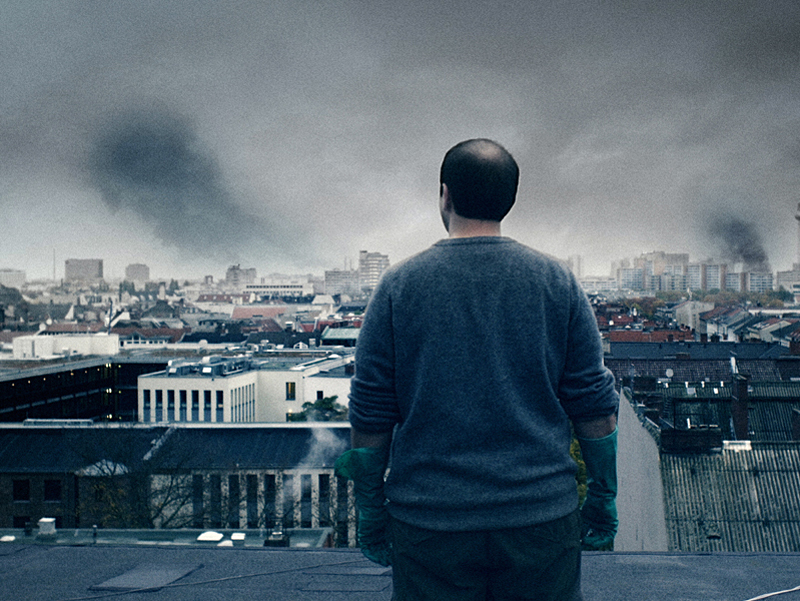A very atypical zombie movie, the somberly effective Rammbock begins like a breakup drama and ends in a Mozart-Requiem swell of German romanticism. Unhandsome schlemiel Michael (Michael Fuith) has just been dumped by his long-term girlfriend; under pretext of returning the keys, he wanders around their old apartment—now curiously empty—hoping to win her back. Hey, what’s that groaning sound? The apartment block rings a courtyard soon filled with the scurrying undead; above, bunkered in their apartments, the neighbors fearfully converse out their facing windows. Strangers before, how can they help one another now? The TV says that tranquilizers can stave off infection from zombie bites, making Valium the new Euro. There’s selfishness and even suicide in response to the siege, yet strangely little valor or action from Michael and his encircled neighbors. When someone tries to make a weapon, he protests, “They’re still people.” And though not a comedy, like the underrated recent Zombieland, Rammbock insists on the absurdity of human desperation: To stay warm, forlorn Michael sleeps in his girlfriend’s bear suit. (Is she a circus performer? We never learn.) Directed by Marvin Kren, written by Benjamin Hessler, Rammbock has an oddly passive, even fatalistic, mood—unlike the hectic zombie revivalism of Danny Boyle and Zach Snyder. Here the undead are more a creeping malaise than a direct assault on society. (Nor can any Nazi metaphors be inferred.) If Berlin is being destroyed, too tired to save itself, it’s the quiet expiration of an already-ill metropolis.
Rammbock: Berlin Undead: When Zombies Come Knocking








